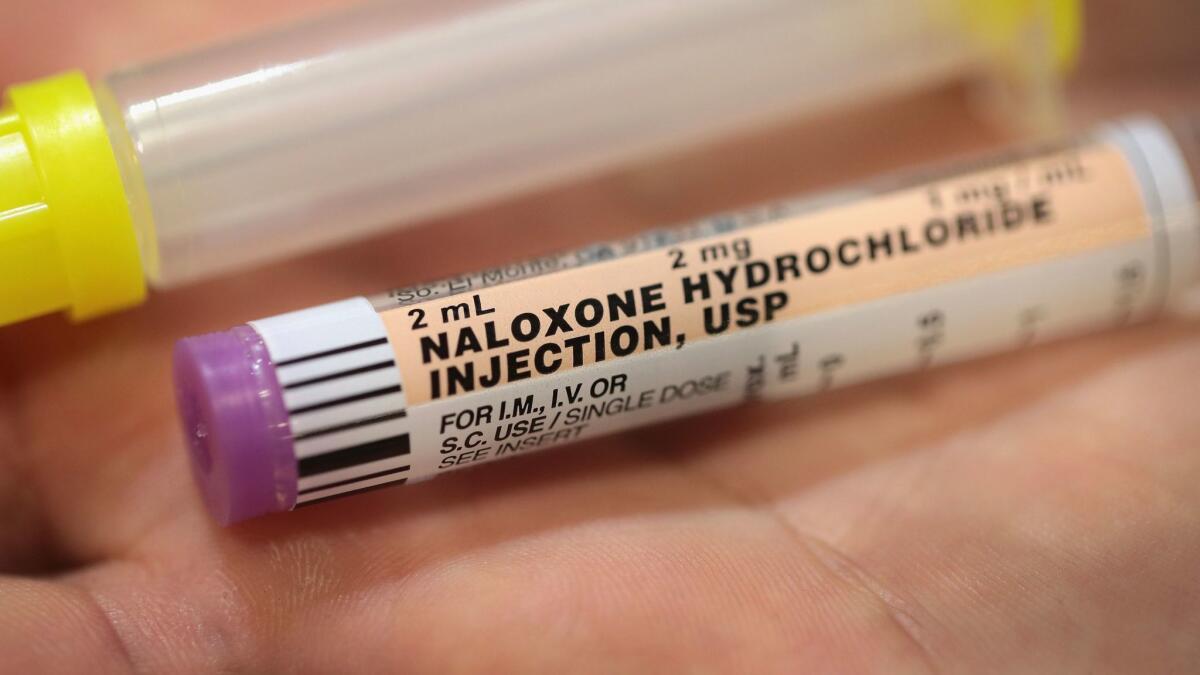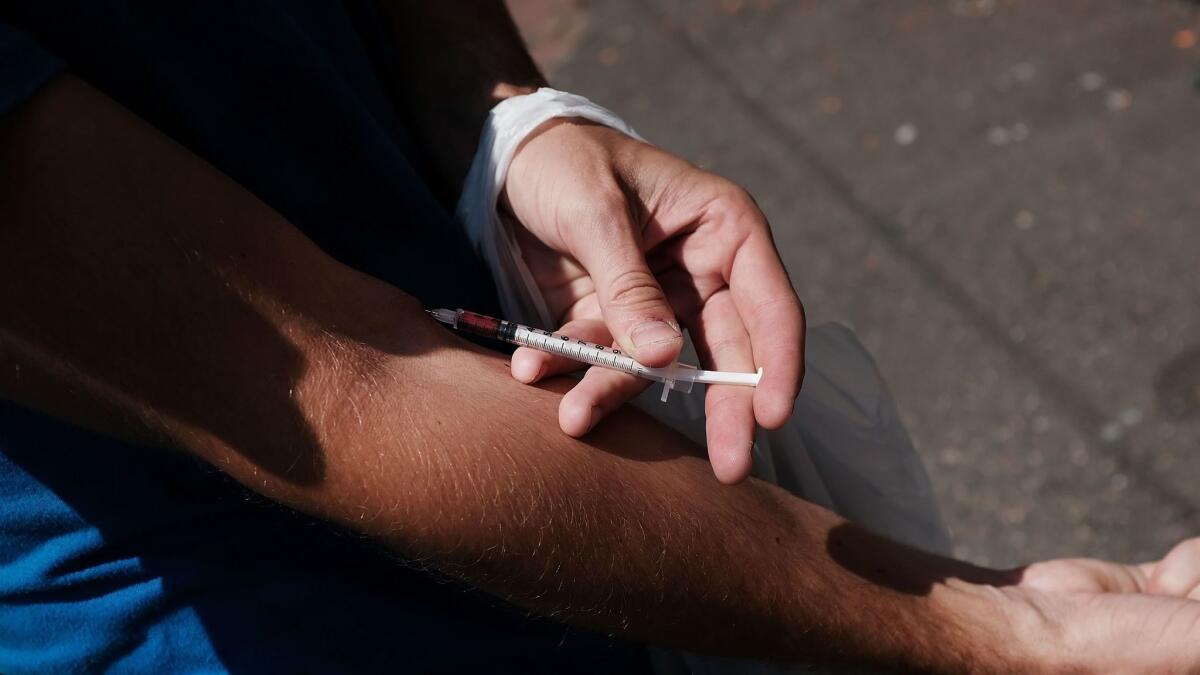White House commission recommends president declare a national emergency over the deadly opioid epidemic

Declaring that the “nation is in crisis,” the White House commission on opioid addiction has recommended that President Trump declare a national emergency over the epidemic that each day kills dozens of Americans.
“Your declaration would empower your Cabinet to take bold steps and would force Congress to focus on funding and empowering the executive branch even further to deal with this loss of life,” the Commission on Combating Drug Addiction and the Opioid Crisis wrote in its interim report released Monday. “It would also awaken every American to this simple fact: If this scourge has not found you or your family yet, without bold action by everyone, it soon will.”
The commission, led by Chris Christie, the Republican governor of New Jersey, was created in March and charged with studying ways to combat and treat drug abuse, addiction and the opioid crisis. Citing data from the U.S. Centers for Disease Control and Prevention, the commission said the epidemic claims an average of 142 lives a day.
“We must act boldly to stop it,” the commission wrote. “The opioid epidemic we are facing is unparalleled.”
Between 1999 and 2015, more than 560,000 people in the United States died of drug overdoses, a death toll larger than the population of Atlanta. In 2015, nearly two-thirds of drug overdoses were linked to opioids, including Percocet, OxyContin, heroin and fentanyl. There were more than 50,000 deaths from drug abuse and addiction in 2015, according to figures released by the White House when the commission was created.

The commission, which said it had received information and suggestions from numerous groups and individuals, offered several other recommendations. They include increasing the capacity for treatment, mandating education initiatives for prescribers and boosting resources for law enforcement agencies to fight the trafficking and distribution of illicit fentanyl.
The proposals also call for establishing a national program to expand access to medications that have been shown to reduce overdose deaths. One of those drugs, naloxone, which is considered to be “a lifesaver that rapidly reverses opioid overdose,” should be prescribed with opioids in certain cases and dispensed through standing prescriptions, the commission said.
The recommendations were greeted with mixed reviews by anti-addiction groups and experts in opioid abuse.
“I think they offer a welcome departure from the Trump administration’s overall approach to drug policy so far,” said Grant Smith, deputy director of national affairs at the New York-based nonprofit Drug Policy Alliance, noting the administration’s attempts to roll back healthcare for people who struggle with addiction. The Affordable Care Act enabled millions of people to get treatment and health services, Smith said.
He praised the recommendations to expand access to medication-assisted treatment and reduce fear among those who need to call 911 in the case of an overdose.
But there were several “glaring omissions” in the report, Smith said. They include failing to address the issue of the criminalization of people who use illicit substances.
“The reality is that law enforcement, in a number of places around the country, are increasingly turning toward measures that re-criminalize overdose,” Smith said. “… This is the elephant in the room that needs to be addressed if we’re really going to make lasting progress in reducing demand for substances and reducing barriers to treatment and other services and ending the opioid crisis.”
Dr. Andrew Kolodny, executive director and co-founder of Physicians for Responsible Opioid Prescribing, said he would have liked to have seen more emphasis on federal funding to help states tackle the opioid problem.
“I believe we need $60 billion over 10 years to address this problem,” Kolodny said. “I would have liked to have seen them call on the federal government to make an enormous investment expanding access to the most effective treatment for opioid addiction.”
Kolodny, who is a researcher at Brandeis University and specializes in opioids, said he was concerned that treatment centers were being required to have certain drugs that were not proved to be effective.
Kolodny said that bringing the opioid epidemic under control required better regulation of prescribers and the companies that make opioids.
The White House commission has promised a final report laying out additional recommendations but did not say when it would be finished.
For more on global development news, see our Global Development Watch page, and follow me @AMSimmons1 on Twitter
UPDATES:
6:20 p.m.: The article was updated to include more details on recommendations and reactions from drug experts and advocates for addicts.
The article was originally published at 4 p.m.
More to Read
Sign up for Essential California
The most important California stories and recommendations in your inbox every morning.
You may occasionally receive promotional content from the Los Angeles Times.











